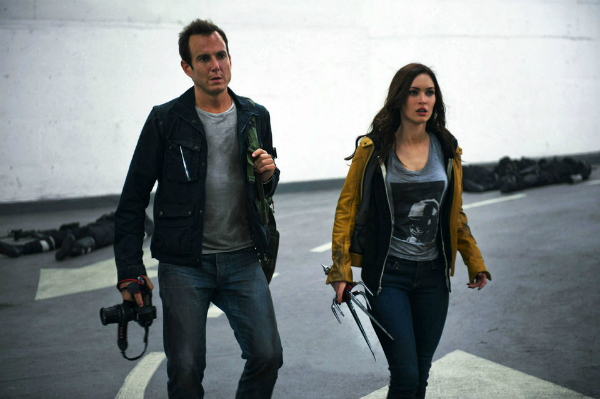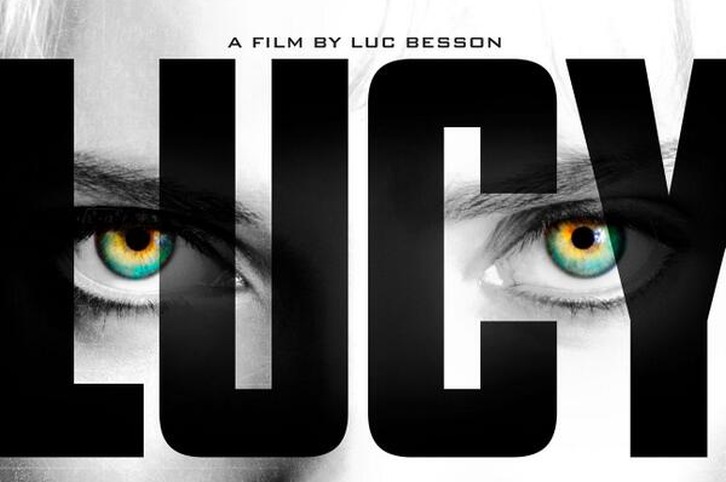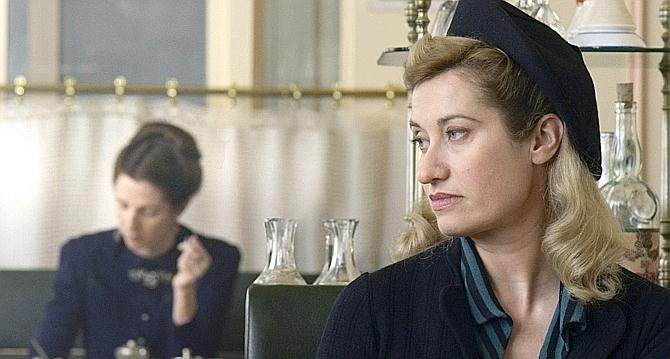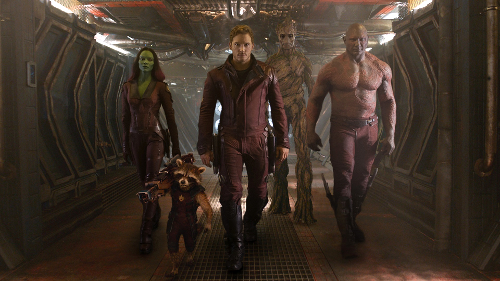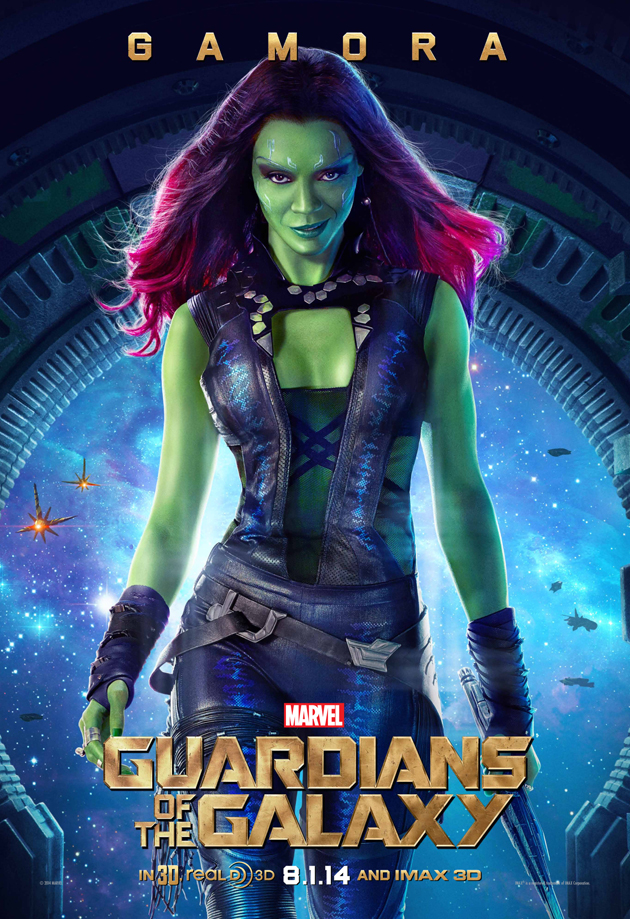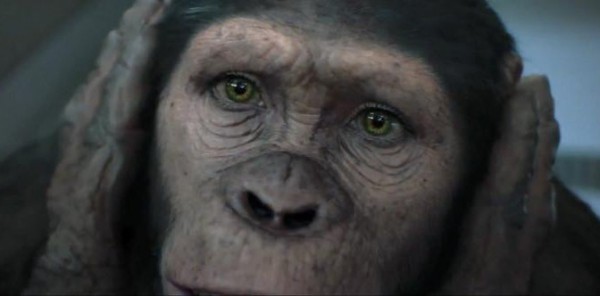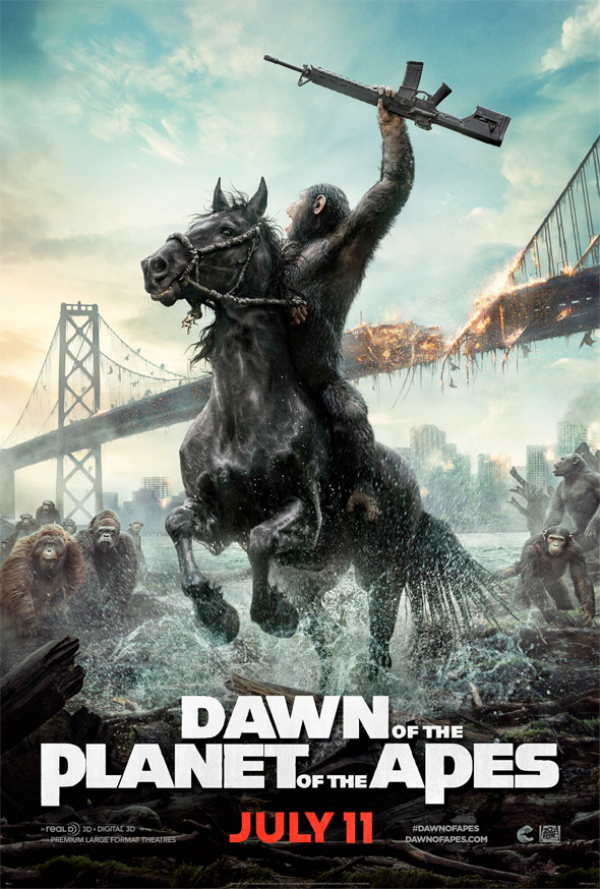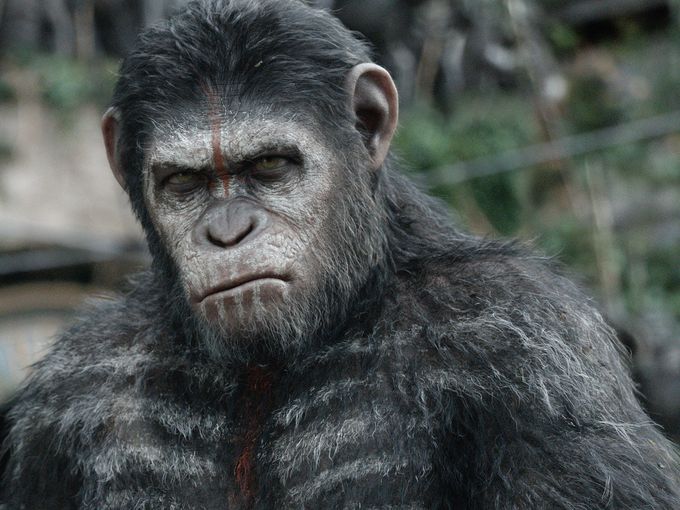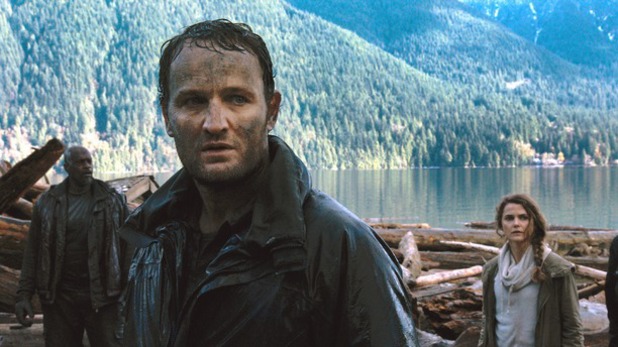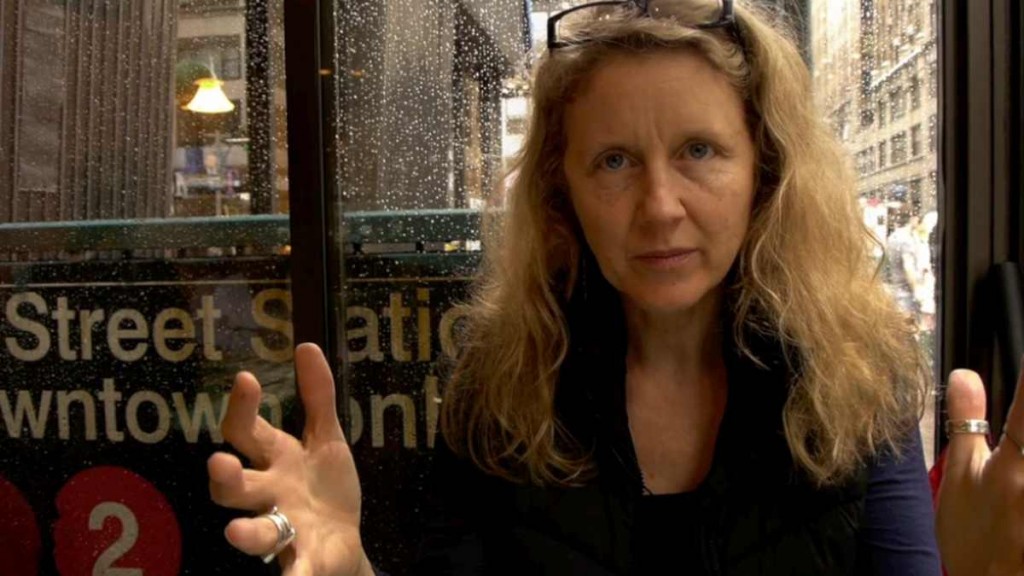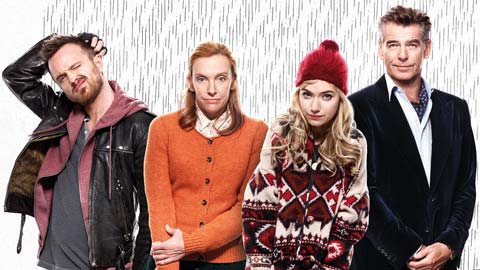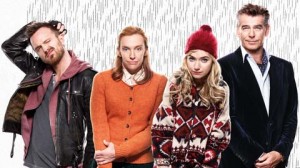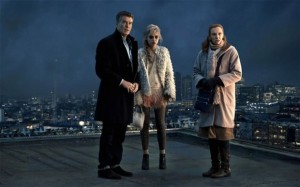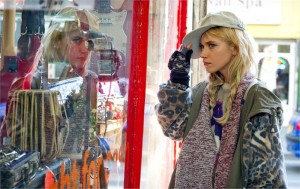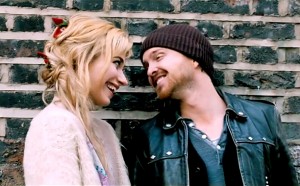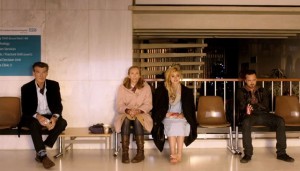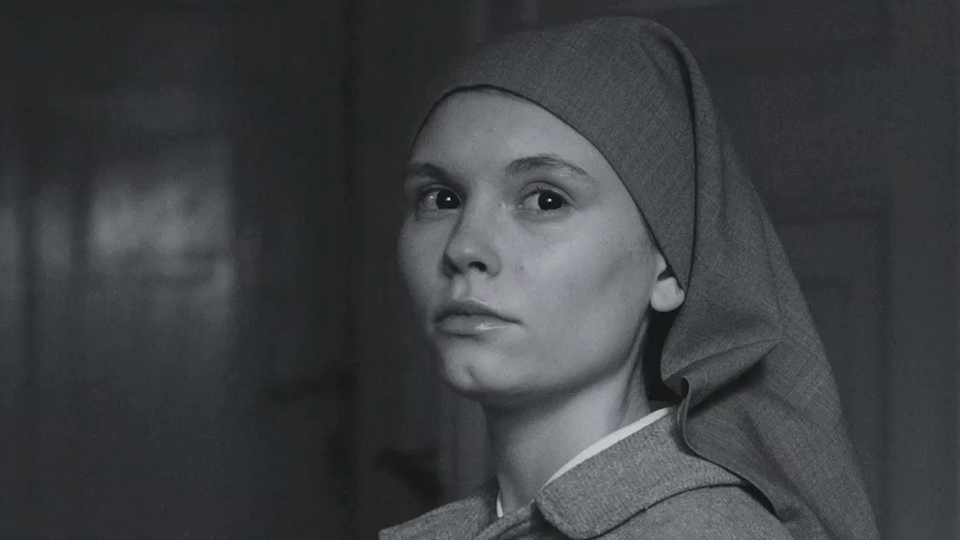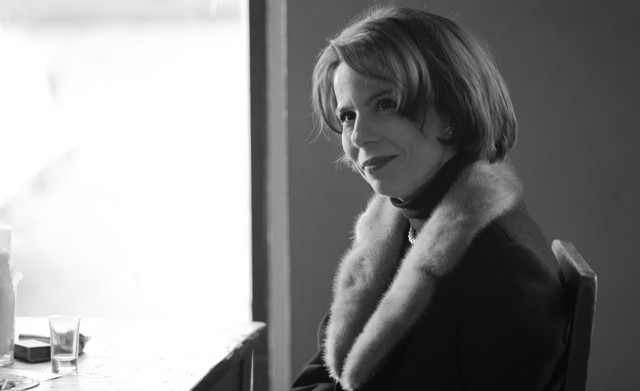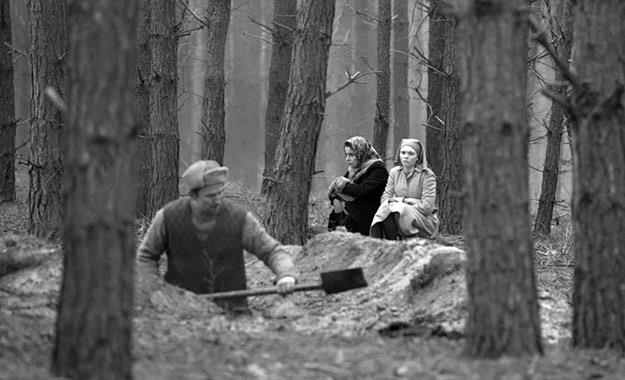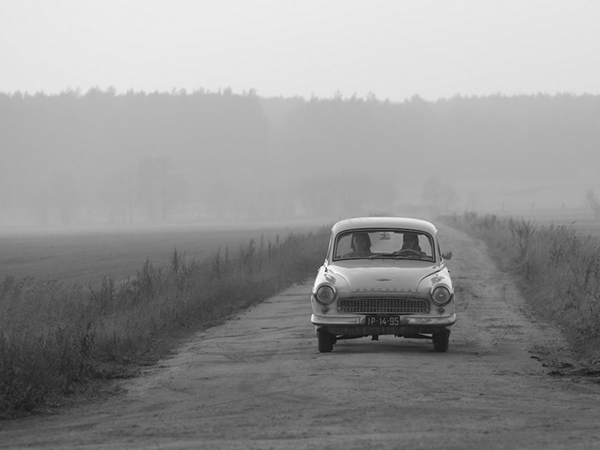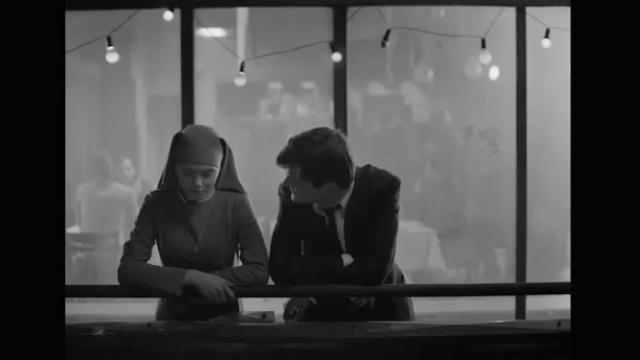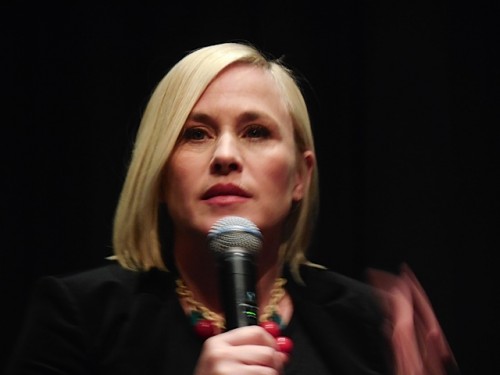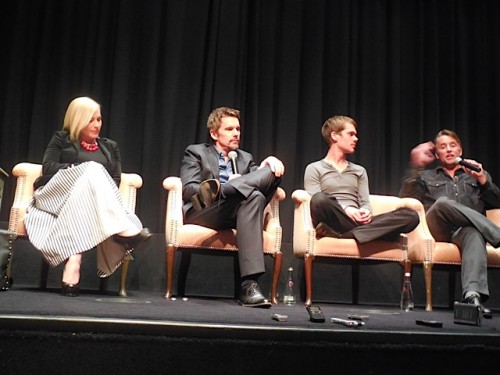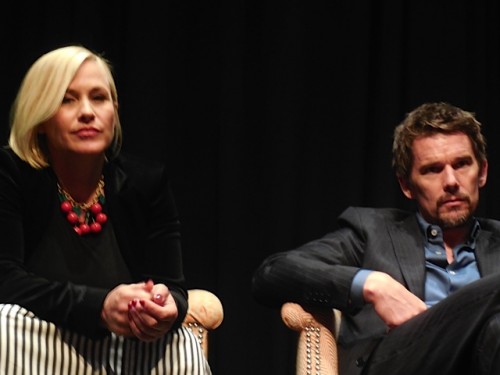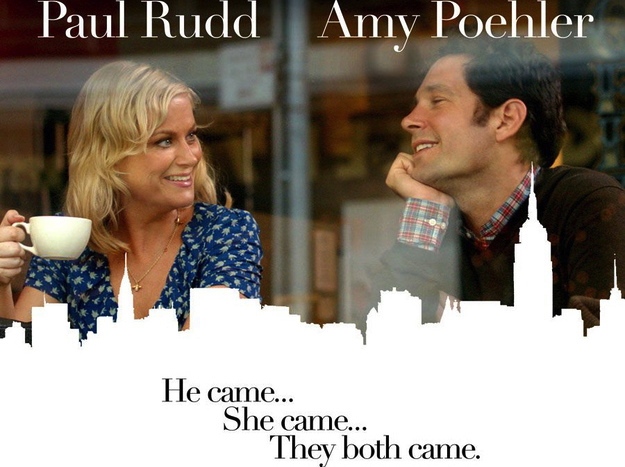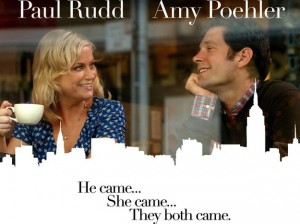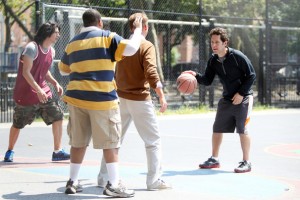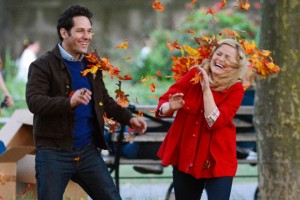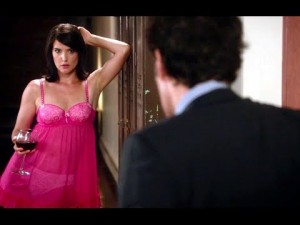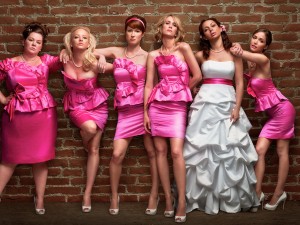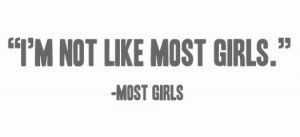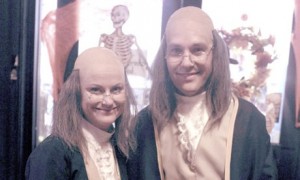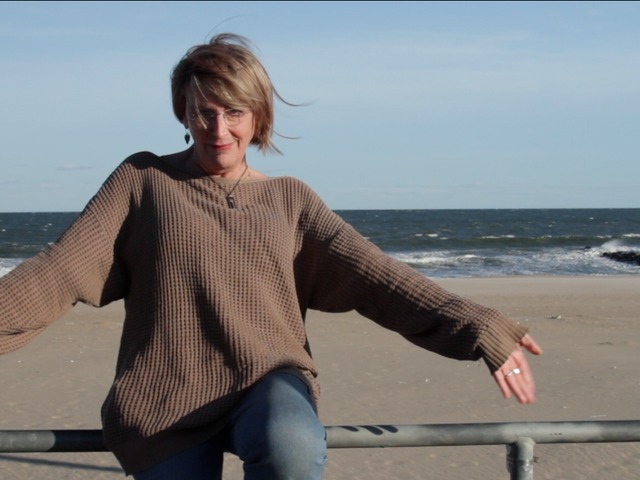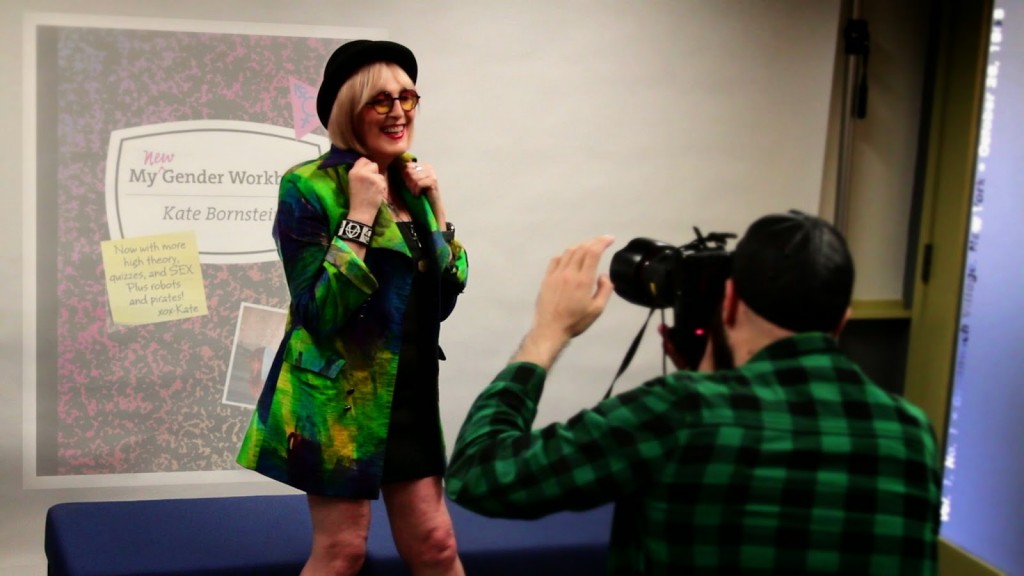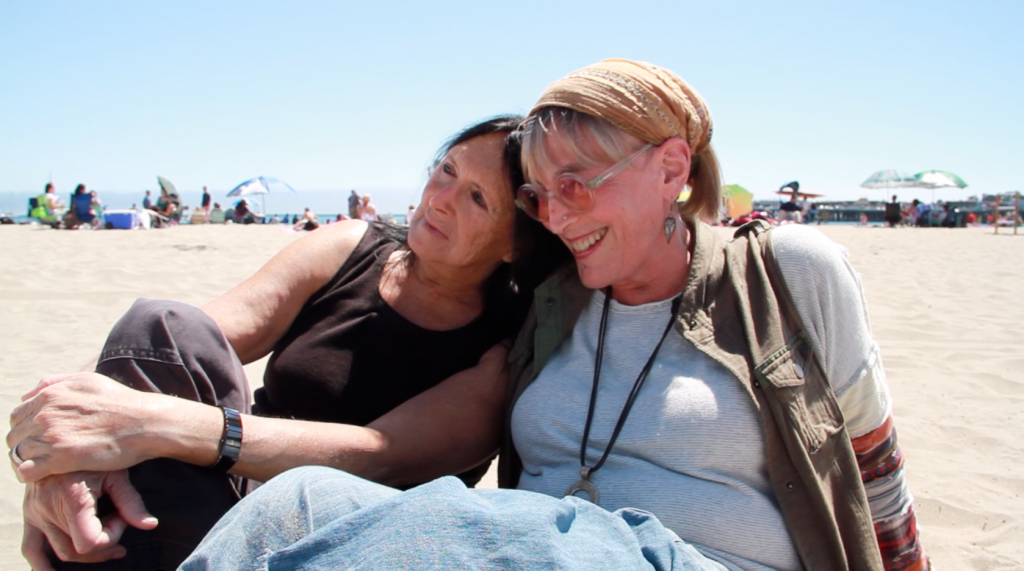
This is a guest post by Melanie Taylor.
There has been no escaping the onslaught of Teenage Mutant Ninja Turtles promotion that’s been inundating every media outlet over the past few weeks. The hype has been huge and the hate has been heavy, even from the beginning back when there was first talk of Michael Bay making the turtles into aliens. Everyone protested Michael Bay “ruining their childhood.” Many fans also lamented the presence of sexpot actress Megan Fox filling the shoes of journalist April O’Neil, the protagonist of the film and the human connection to the outside world. Hate and hype aside, the film carried on, and the cast was filled out by Will Arnett playing Vernon Fenwick, her goofy cameraman sidekick, and William Fichtner as Eric Sacks, the obligatory evil genius.
I, for one, was excited to see Megan Fox in a film that does not revolve around her sexuality. In promotion for the film, Fox says that her character is “courageous” and “ambitious…fighting for the truth,” a Joan of Arc type of character. The director, Michael Liebesman, echoes her sentiment, stating that he didn’t want April to just be eye candy, that she is meant to be an integral part of the Turtles’ survival and mission. While the film starts strong and leads with April aggressively interrogating a source, determined to find an opportunity to report something beyond a fluff piece, the “ambition” teeters off and is never fully realized.

The first half of the film we follow her character in her quest to uncover the truth, get a story, and stop the destructive Foot Clan that has been causing havoc in the city, but in the second half of the film April completely abandons her career ambitions and is basically just along for the ride in what seems like an endless 45 minute long action scene. I say “first half” and “second half” because there is no third act in this film. There is no wrap up of the main character’s goals or problems, only a stop-the-bad-guy-and-say-goodbye-to-the-Turtles sort of ending. However, you can see from released B-roll footage that at one point there was a third act of some kind at some point.
On top of the lack of a third act, the film almost seemed like a rip off of the 2002 Spiderman storyline — bad guy scientist has a plan to take over the city and kill people with some kind of chemical and the good guys must stop him. The film was practically a parody of the action superhero genre, which actually made the generic dialog more tolerable to think of it that way.
By far the most disappointing aspect of film is the verbal sexual objectification of April O’Neil. She may not be scantily clad, but the male characters (mostly Mikey and Vern) in the film frequently make sexual comments to her, to which her response is complete and total silence. For an actress who has expressed plenty of feminist quips and spoken so adamantly about “refusing to flirt on set,” even going into detail on how she handles it, saying “you never have to feel like someone has power over you,” I’m surprised to not see that influence on this character. There was no script when she signed on to star in the film, and from interviews I’ve watched it seems like the storyline was a collaboration between her, the director, and the producers.
Vern jokes about the nice view of her rear end when she’s leaning out a window, and Mikey makes comments throughout the entire film about being attracted to her, including implying that she’s giving him a boner. Her response is to stare blankly at him like a personality-devoid sex object. Not once does she tell him to cool it, chill out, stop, or respond with some witty come back at least. Aside from the fact that he’s a teenager and she’s a grown woman, she’s there to get a story and help the turtles, not give them boners.

Although she does have moments of strength where she saves them, the Turtles don’t seem to care about her beyond thinking she’s hot. Fox has repeatedly stated that she doesn’t mind being the sexy aspect of a film and while a little sex appeal in an action film makes sense, it’s a bit of a contradiction to talk about April being this great role model for girls because she confronts danger and has career goals, both great traits, when that character is also painfully silent in the face of unwanted sexual attention. You can have a sexy character who is not a silent sex object.
This was a missed opportunity for Megan Fox to showcase a truly strong female action hero. When Mikey makes comments about how she can always find him “here” as he points to her “heart” aka chest, she could have shut him down with something like, “Cool it, kid. I’m here to get a story!” or something more clever like what she does in real life. Instead we got deer in the headlights silence as the audience laughs at how much he is drooling over her.
For what it’s worth, this film technically passes the Bechdel Test – April has conversations with her female boss, played by Whoopi Goldberg, and her female roommate in two cute scenes that get a laugh, but the film and entire franchise still suffers from the “Smurfette Principle.”
Shredder, the whitewashed bad guy with boomerang-like knife hands, and Splinter, the rat father of the turtles, could not have been less developed and less interesting as characters. There was little to no backstory for them. Splinter was hideous to look at and Shredder had no personality. Megan’s performance was enjoyable, but kind of weak compared to her performances in This is 40 and Friends With Kids. I’ll give her a pass though, because she was pregnant throughout the entire film, nauseous almost every day on set. Pretty badass to make an action film while pregnant.
The saving grace for TMNT was the humor of jokester Michelangelo. He got the most laughs and was the only thing to make the nonstop, over-the-top action that dominates the second half of the film bearable. He provides the much needed levity to the excessive machismo of the film. Another positive aspect of the film was Will Arnett as Vern, who was charming and likable, even if he was that sort of annoying guy-friend-who-can’t-take-a-hint type. Sexual objectification and lack of a character arc aside, Megan Fox comes off as very likable as well in this film. She’s determined and brave and her backstory and connection to the Turtles gives her character heart substance.
The film ended on a note that very much implied a sequel, and considering the big box office numbers of opening night, a TMNT 2 is inevitable. Let’s just hope that in the second installment, at the very least, that April learns to shut down sexual harassment and gets to reach her career goals and have some kind of character arc along with the Turtles and the bad guys.
Melanie Taylor graduated from CSUN with a degree in screenwriting. She writes for her blog The Feminist Guide to Hollywood and is also a musician who shares her music on soundcloud.com/phantomcreatures. Follow her on twitter: twitter.com/tigersnapp.
